PI-ku: eight geekily poetic haiku about physics from Perimeter Institute
Five, seven, and five / The structure of a haiku / Here’s some on physics.
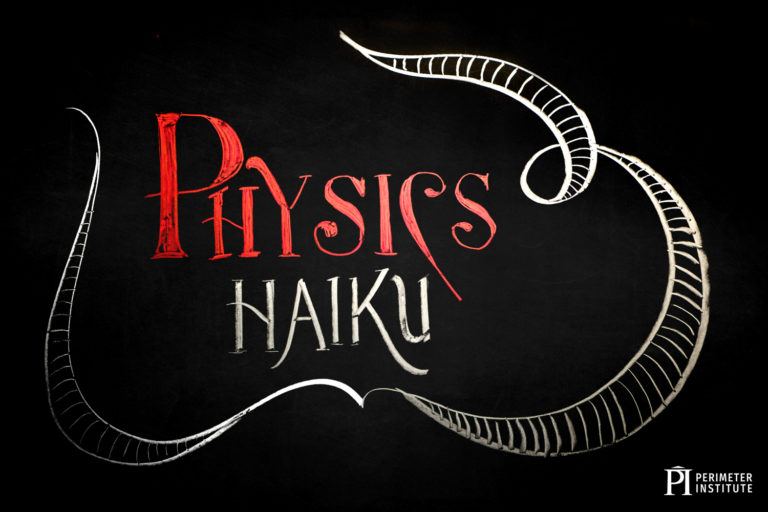
It has been said that “physics is the poetry of the universe.” Well, we assume it has been said. If not, we shall promptly copyright it and charge royalties for its usage.
Regardless, the sentiment is true: physics employs the language of mathematics to tell the story of the universe, just as poetry helps us decipher the human condition. We decided to marry physics and poetry by asking researchers, students, and staff of Perimeter Institute to share their best physics haiku.
The basic rules of haiku are simple: five syllables, seven syllables, five syllables. Explaining quantum gravity and string theory in that format? Not so easy, but a fun challenge. Write your own haiku in the comments below. We’ll share them!
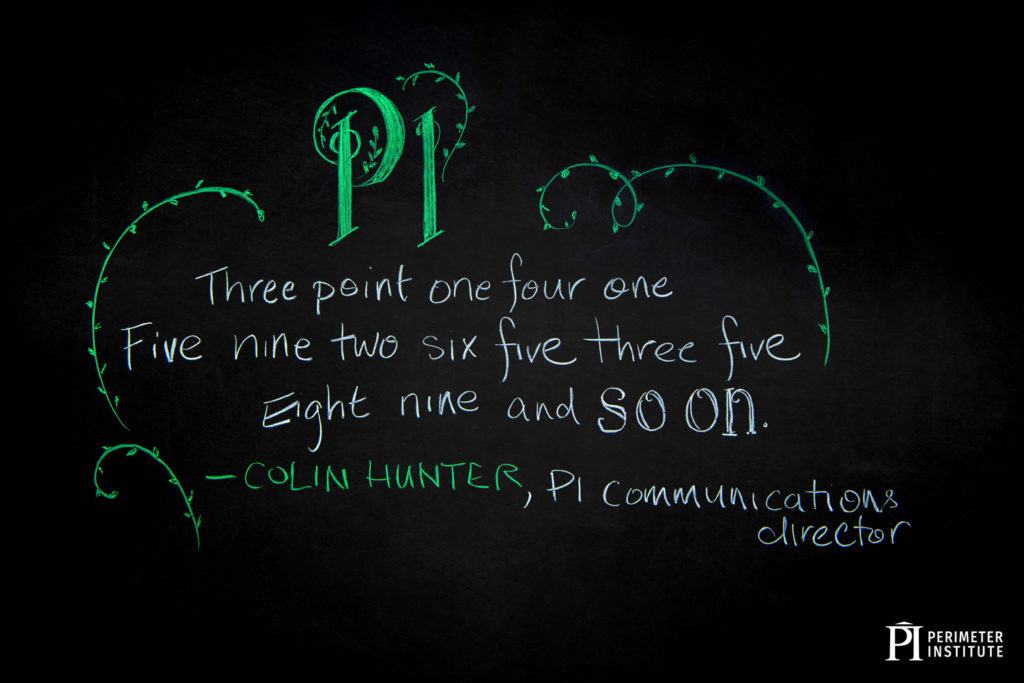
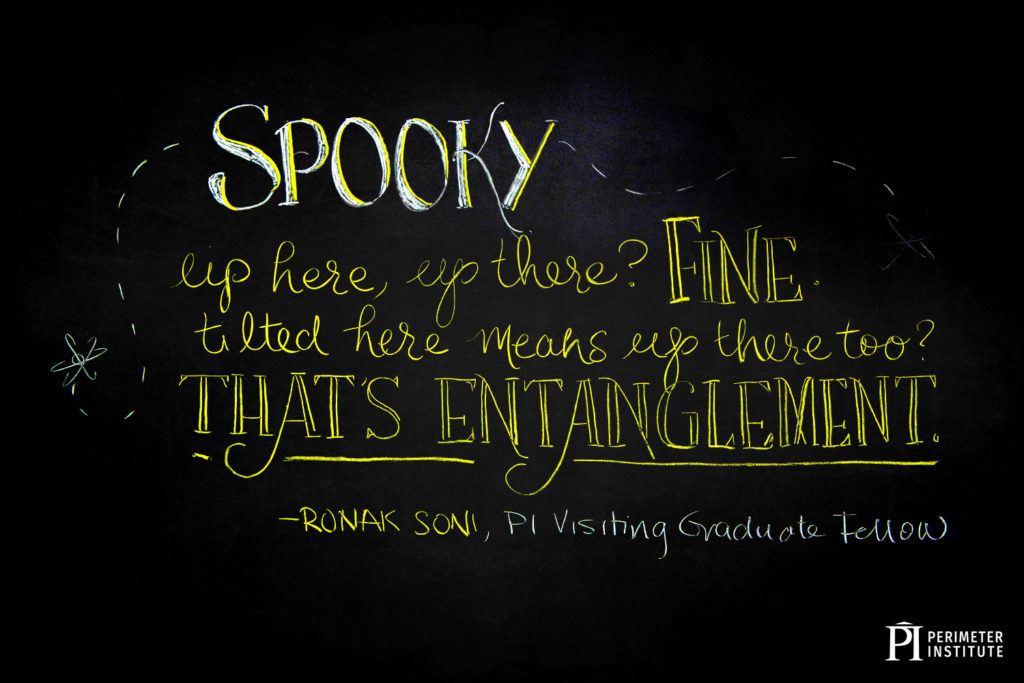

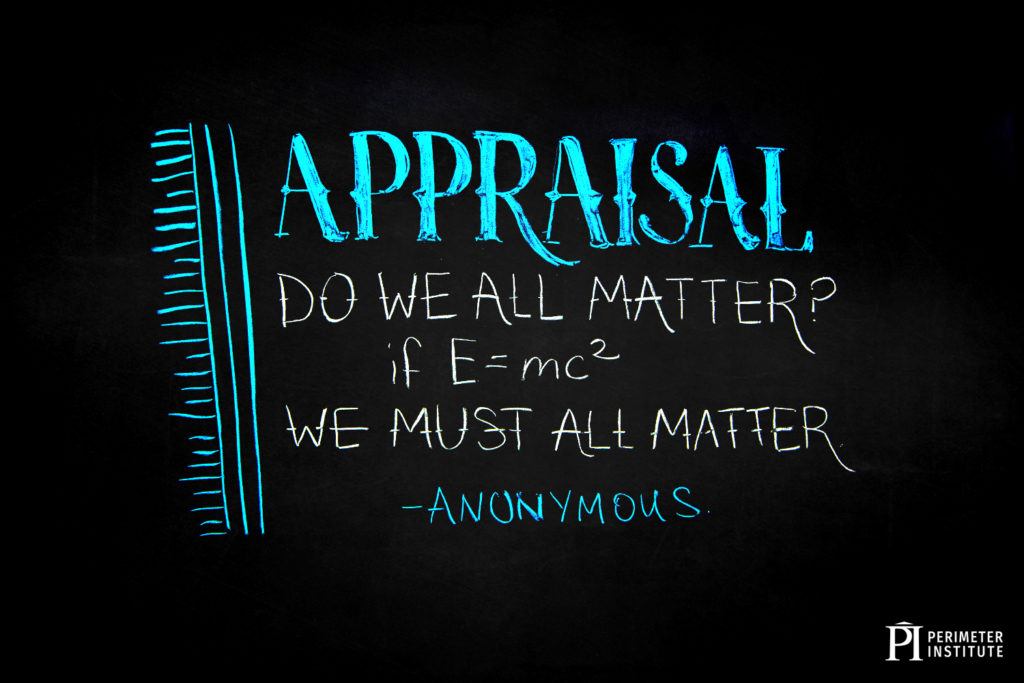
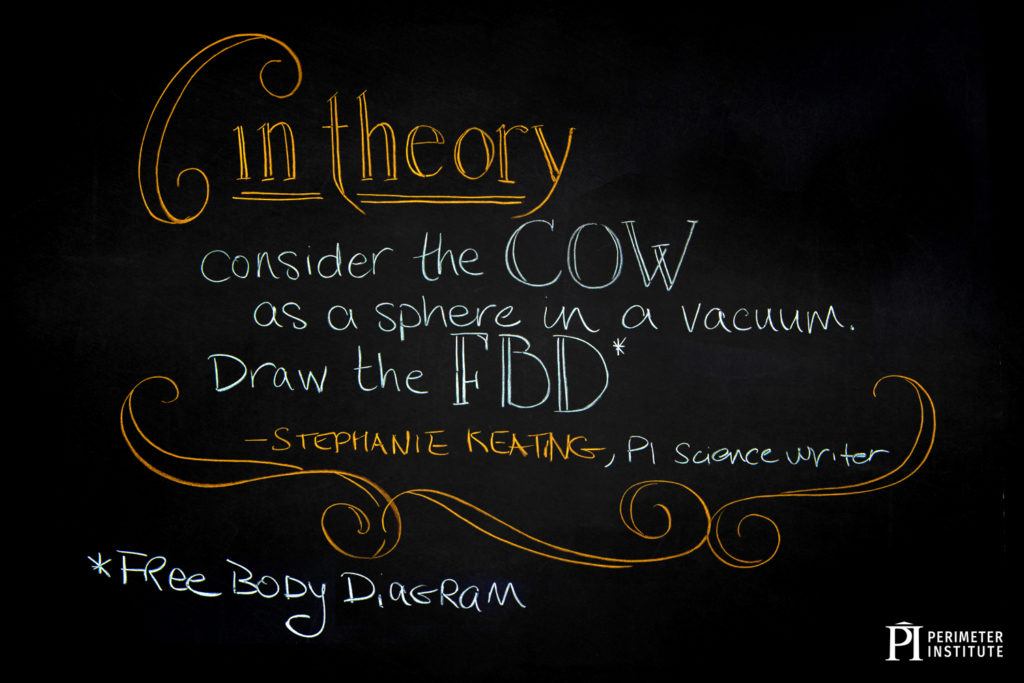
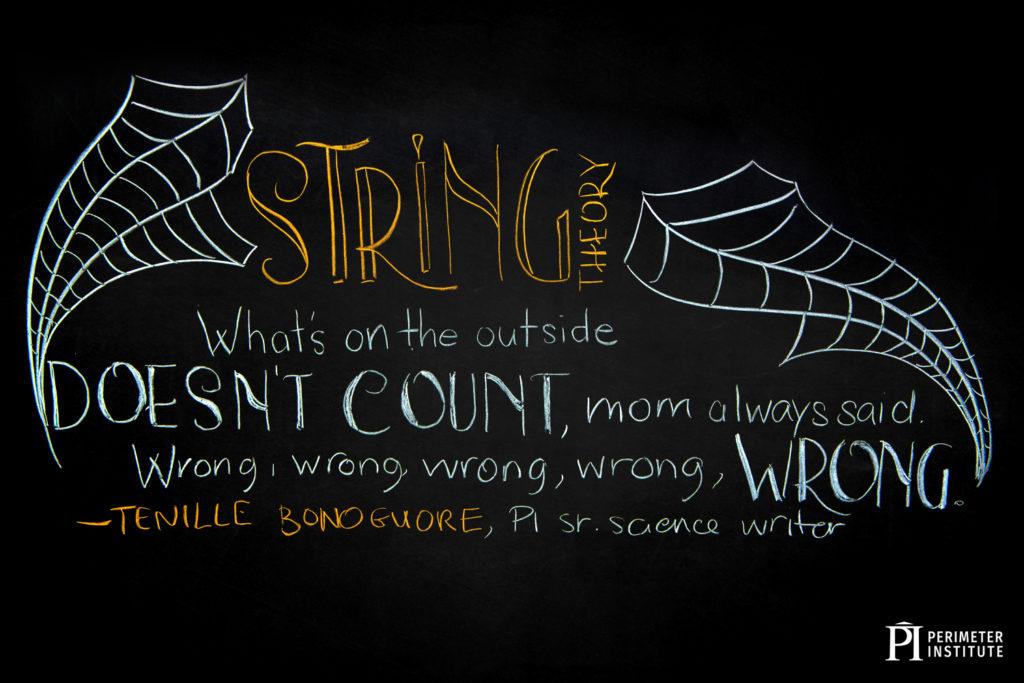
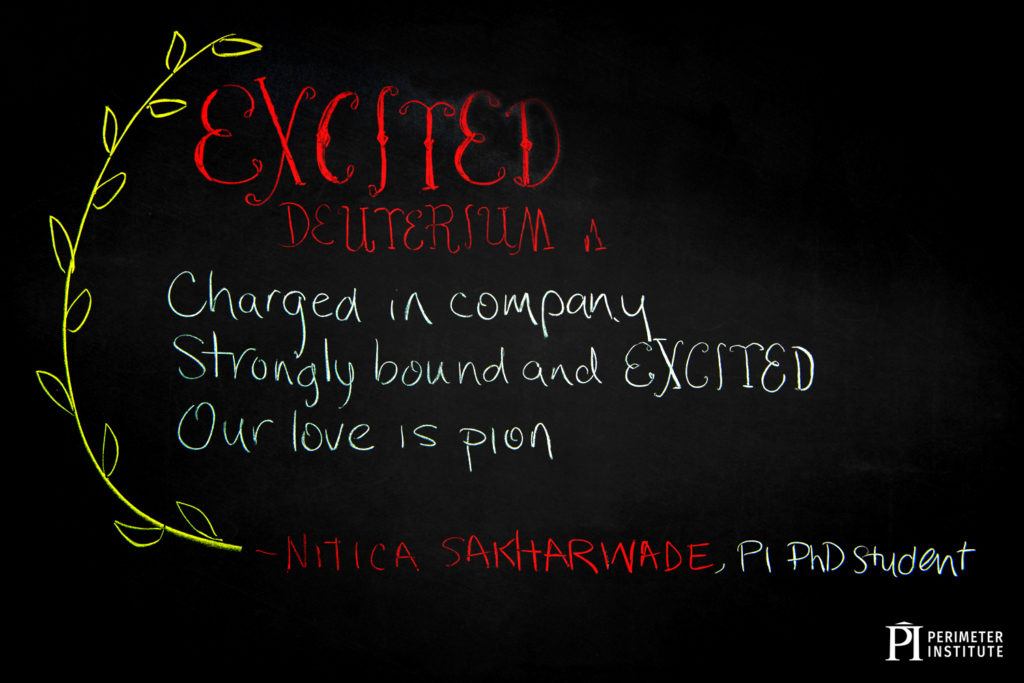
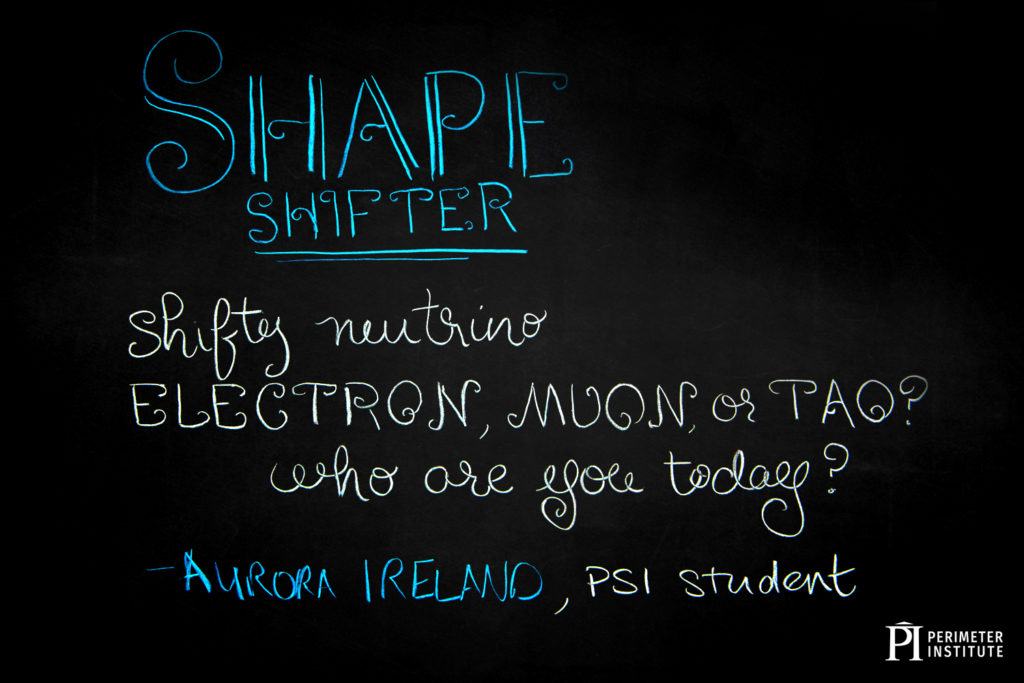
Need more inspiration? A few runners-up:
Multiplication
Once I had two quarks
Pulling apart. Now they’re four.
Hadronization.
– Aurora Ireland, PSI student
Compute me
I am a qubit.
I am up and down and both.
I’m Schrödinger’s bit.
– Colin Hunter, Perimeter communications director
Quantum field theory
Stitching together
the micro and the macro.
Nature’s warp and weft.
– Tenille Bonoguore, Perimeter senior science writer
Share your own in the comments below!
7 Replies to “PI-ku: eight geekily poetic haiku about physics from Perimeter Institute”
Comments are closed.





















































































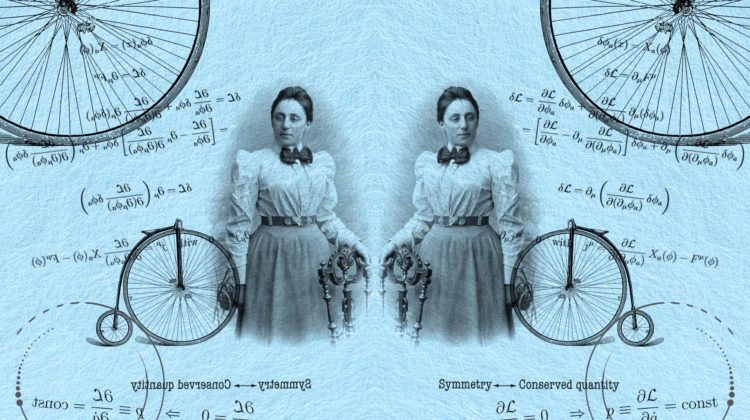

Simplicity in Motion
A body at rest
Tends to stay at rest until
Forced to move on
A body moving
Remains in motion until
Stopped by a force
Unified Theorem
Points of non-existence
In Dark Matter
Unifies us with a universe.
David Tovell, Perimeter Donor
Surfactants
Oil calms rough waters.
Pour a teaspoon, we shall see
How big atoms are?
Suraj Shankar, Syracuse University PhD student
The Time-Space Continuum
Once apart, now joint
The time-space continuum
Given us by Einstein
As alluded in the article above, physics is the poetry of science. Therefore, sometimes I like to write physics poetry. Below is one.
NEW YORK CITY, THE POETIC COSMOS
The Universe dances around
Munching on wine and cheese
As poets read their souls
Wrapped in dark matter
Creating the multiverse
In physicist’s head.
All of a sudden
The dark energy hollers out
Across the cosmos
Stringing verses
Into infinite space-time
Challenging Einstein
With an ironic laugh,
Offering him a cup of quanta
To measure
And the Bohr paradox.
The poets beat their heads,
Accompanying their non-associative buddy,
The octonion
They search for the answer.
Trying to reach out
To their savior,
The gravity,
They recite loudly,
‘Oh gravity, the gravity
The universe in itself
The beauty of our existence
Where hast thou vanished?’
Meanwhile, the expansion continues
Ripping the poets apart,
Banishing them
With their made up stories
To the Hawking’s puzzle,
The warm black holes.
Did the poets enjoy
The end of the world party?
http://www.facebook.com/nycrainbowfaces – Community Voice of NYC Diasporas Thru Artworks, Storytelling & History spreading the Voice of People of All Colors, Cultures & Customs!
Copyright – Masuma Ahmed
Paper mirrors stone,
Shaping waves around a globe;
A galaxy trails.
The fact of matter
In particles do dwelleth
Why What Where When Who